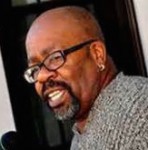 The discomfort of being THE black guy in the room is something that I have to negotiate over and over again. Often—especially in progressive and/or queer political spaces— I am one of very few people of color. In practice, the demographic “count” to cover all bases means that there’s one of this and one of that and a whole bunch of white folks at the table.
The discomfort of being THE black guy in the room is something that I have to negotiate over and over again. Often—especially in progressive and/or queer political spaces— I am one of very few people of color. In practice, the demographic “count” to cover all bases means that there’s one of this and one of that and a whole bunch of white folks at the table.
Let me be clear, I feel such deep fondness, respect and care for so many of my white friends and colleagues in our shared struggle for justice for the LGBTQIA+ communities.
I resonate and rally with really awesome folks around the environment, class struggles, nationalistic violence and other issues. We stretch and grow to see our complicity in the world’s continued colonization, exportation of homophobic, transphobic and sexist hatred. We listen with our hearts wide open to the historical pain of First Nation peoples and some of us even stand in deep solidarity with those oppressed by arbitrary, family destroying, life-diminishing immigration actions.
And then it happens. Another black person murdered—whether by law enforcement, a vigilante or a lover. Then the usual tropes emerge.
We don’t know the whole story.
She shouldn’t have been there/done that/been a sex worker/done drugs/been with a thug.
Well, he did have a record/knife/gun.
This is where I begin to kick my own butt for forgetting my blackness for even a moment. This is the moment of silence that takes my breath away and makes me wonder if it will ever return.
This is the place where I begin to pray quietly for the ability to just get out of the room without exploding, crying, or in any way sharing my vulnerability in a suddenly unsafe place.
Year after year, I’ve gone to Transgender Day of Remembrance events full of white trans women. These women are my friends. They are kind. They are compassionate. Yet they somehow don’t seem to notice that many of the women that they are crying over have never felt welcomed in their monthly meetings.
I have a hard time with what they seem not to notice.
When I’m invited to travel to “safe” queer areas to speak or participate, there’s never the thought that my terror in driving to or through your safe space is that I’m a Black man in a time and place that has shown me over and over that I’m not safe from the law or the lawless. There seems to be no consideration of my safety being on the road, after dark, in your “safe” areas wearing the skin of Eric Garner and others.
But I do frequently hear how unsafe my area is for others. I have no doubt these sentiments are both based in truth and in an unexplored race/class bias that screams that black/brown people are more homophobic and transphobic and more violent.
This is my hope and prayer: As we move forward together, doing the work that we love and that we are called to do, please take a moment to see me. Take the time to hold my concerns deep in your heart.
Pray for me and give me space to be away from you when I need to—without making it about how much you want to tell me how you feel.
Come to my side of the world, fears notwithstanding. Let’s explore what you mean when you talk about an entire area of town that you’re only familiar with based on what you’ve heard or read. And remember, when you talk about “bad areas,” you’re talking about my home, where I live, work and worship.
I know that this may sound really harsh. It’s not my intention to serve you a platter of tough love. It is my desire to have the room to really build together with you.
It is my goal to be able to build trust with you. I want to be able to share with you and to be able to be held by your faith and love.
Adapted with permission from Believe Out Loud.